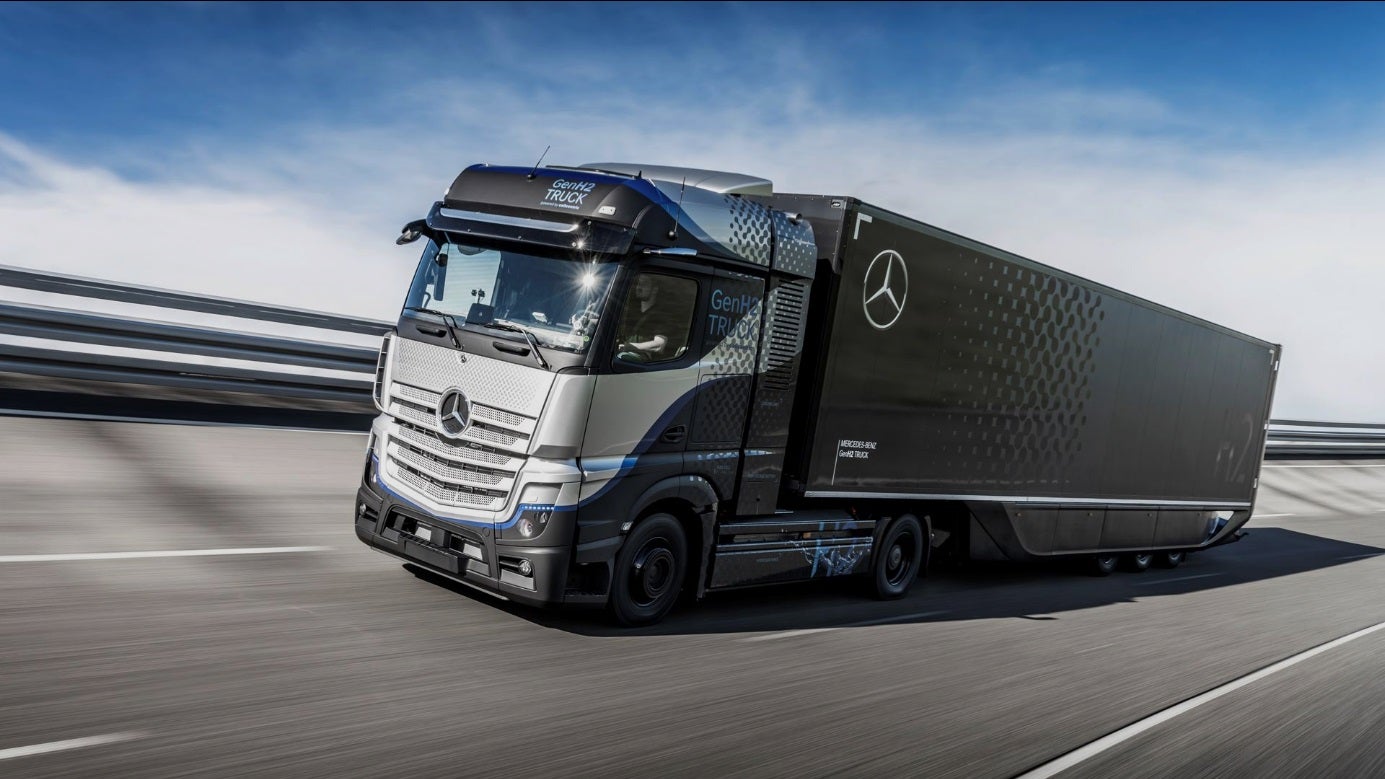
Daimler Truck is readying for a Frankfurt stock market listing on December 10th and expects to qualify for the DAX – the group of Germany’s most valuable listed companies – in the first quarter of 2022.
“We have a clear ambition for Daimler Truck: We’re committed to achieving higher profitability and to going full speed to win the race to zero emissions. We can’t wait to make our company even stronger. Ahead of the planned public listing we are ready for independence and for unlocking our full value potential,” said Martin Daum, CEO of Daimler Truck AG.

Discover B2B Marketing That Performs
Combine business intelligence and editorial excellence to reach engaged professionals across 36 leading media platforms.
At the unit’s Capital Markets Day last week, Daimler Truck CFO Jochen Goetz reiterated the group’s commitment to improve profitability and create value for shareholders. Daimler Truck’s ambition is to achieve more than 10% Return on Sales (Industrial Business, adjusted) by 2025, assuming strong market conditions.
Daimler Trucks North America (DTNA) is aiming for a 12% adjusted Return on Sales, Mercedes-Benz for 10%, Truck Asia (TA) aims for an adjusted 9% Return on Sales and Daimler Buses for 7.5%. With Daimler Truck’s new Financial Services business the company is aiming for 14% adjusted Return on Equity. The company says it is working to improve resilience by significantly lowering the break-even point, thus to be able to achieve at least an adjusted 6% to 7% Return on Sales in the Industrial Business in 2025, even in adverse market conditions.
Daimler Truck’s 2021 adjusted Return on Sales is expected to be between 6% and 8%, despite semi-conductor shortages and rising raw material prices. In the course of the Capital Markets Day, the company also announced that given the progress already made, Daimler Truck aims to achieve its target to reduce fixed cost by 15% compared to 2019 as early as 2023 – two years earlier than announced in May at the Strategy Day. For 2022 the group assumes an adjusted Return on Sales of the Industrial Business between 7% and 9%.
Andreas Gorbach, CTO and Head of the Truck Technology Group, further elaborated on Daimler Truck’s technology strategy which is based on three pillars. Firstly, investments for the conventional ICE combustion engine in the powertrain will be further reduced. Besides the successful partnering with Cummins for medium duty engines, Daimler Truck Group also seeks partnerships for heavy duty engines to share the required investments to implement the upcoming emission regulations. Secondly, the majority of R&D spending is to be redirected to zero-emission vehicle (ZEV) technologies by 2025. Here, the company is focusing on both battery electric vehicles (BEV) and hydrogen-based fuel cell electric vehicles (FCEV). Regarding Daimler Truck’s goal to establish a network of 150 hydrogen refueling stations and 5,000 heavy-duty hydrogen trucks by 2030, in addition to the recently announced collaboration with Shell, the company announced two additional partnerships: Together with BP, Daimler Truck strives to accelerate the H2 infrastructure development in the UK. In another partnership with Total Energies, the company is likewise aiming to enhance the H2 infrastructure in the major transport markets of France and Benelux. Thirdly, Daimler Truck says it will push software development with the next evolution of the mechatronic architecture and a truck-dedicated Operating System.






